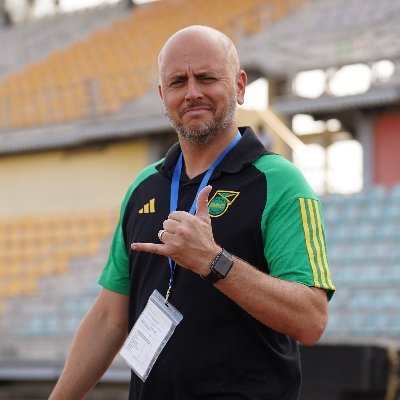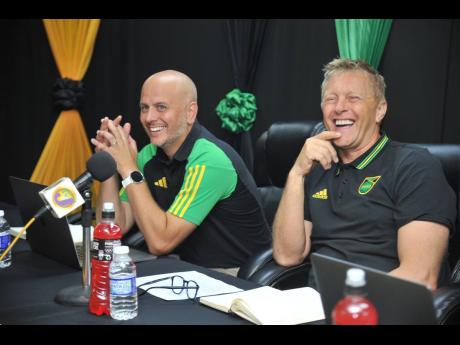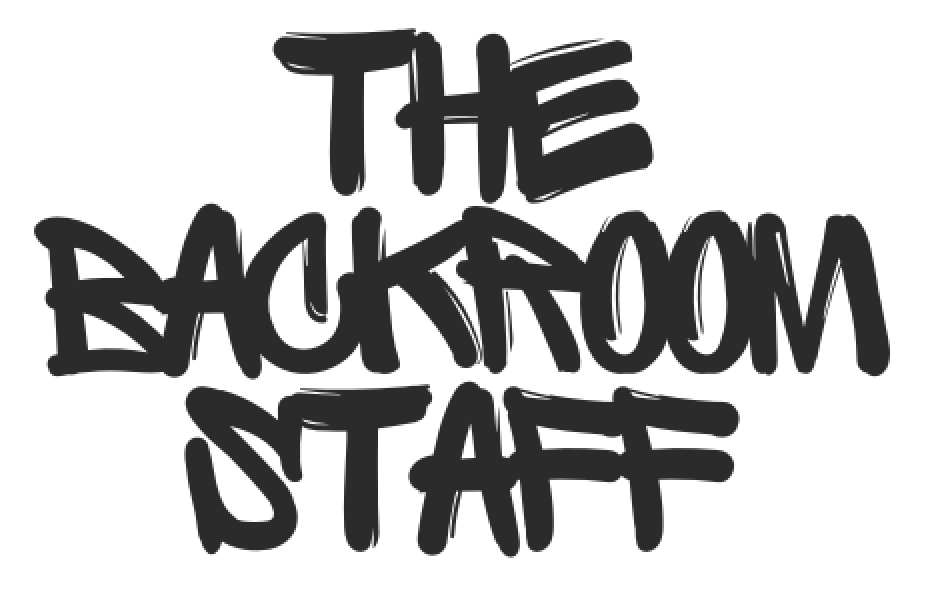Football coaching is increasingly defined by specialization - technical coaches, set-piece specialists, and data analysts now play crucial roles within teams across all levels. But what about the value of versatility? The ability to adapt, lead, and thrive in different coaching environments is just as vital, yet often overlooked.
In this interview, John Wall shares insights and stories from a career that has taken him across clubs, national teams, and continents. Having worked as both a head coach and assistant, he offers a unique perspective on what it means to be a truly adaptable coach in today’s game.
The interview has been condensed and lightly edited for grammar and clarity.

[ Background ]
I grew up about an hour and a half north of Stockholm, in a city that was more of a hockey town to be honest! I played football as a kid of course but I actually quit playing at 16 as I saw myself better in hockey. In high school, I studied social science with an international base where everything was in English - I think that helped me later.
I was an early adopter of Championship Manager (now Football Manager) and was always drawn to the more tactical or strategic side of things. I found football more ‘pure’ and the culture around the game was more intelligent than hockey - so even though I quit playing, I started coaching football when I was 19 or 20 and never looked back.
[ Qualifications ]
Usually, I talk about the things I haven't done yet - I still need to take my Pro License. When I started getting my coaching licenses, the process was different to today but I received the UEFA A License in 2006, I was 25 at the time. Then I did the pilot for the UEFA Elite Youth A license - which has now become standard - it’s aimed at coaches working with academy players bridging the gap between the first team and the top youth teams.
I also got a sort of double bachelor's in sports science and as a physical education teacher. This route helped me devote more time to coaching while I was not full time.
I speak 5 languages too, English and German from a young age in school and Swedes are cheating a little because we basically have Norwegian and Danish too! With some time, I could probably learn a few more languages like Flemish that are close to German and Danish but Spanish is my next challenge.
[ Why haven’t you taken the Pro License yet? What are the benefits? ]
Well, in my case, it's essentially a block on coaching a first team in a top tier, and to some extent also a second tier. After the A License, I didn’t want to just ‘speed’ through things just to get the certification. I wanted to have different experiences, including outside of Sweden.
There’s been times when I feel like I should have been accepted onto the course but for one reason or another - often political things - I’ve not been selected. On the flip side, when I finally do, I’ll be more than ready!
—^interviewer’s note: many professional leagues require head coaches to hold certain licenses (usually UEFA Pro) clubs who employ head coaches without the required license risk fines. Famously Will Still cost Stade de Reims €25,000 per match for example.
[ You’ve switched several times between head coach at a smaller club and assistant at a big club or national team, what is the hardest transition between these roles? ]
It’s both the most and least egotistic job you can have!
The transition from it’s your ideas, your body, everything (head coach) to putting yourself in service to others (assistant). In football, it’s always about the ‘main man’ - the head coach. I’ve found it pretty gratifying in many ways to devote time and enthusiasm to things not afforded to a head coach, like individual talks with players. It can be nice to have a small separation between you and the way a team plays for example.
On the other side, you learn what you want as a head coach from an assistant. I think being an assistant probably makes you better as a head coach. It’s really important to understand all roles and what they require, this helps you better relate to the people you work with.
"It’s both the most and least egotistic job you can have!"
[ You worked under some big name coaches like Hans Backe and Heimir Hallgrímsson - what are the steps between meeting them and becoming part of their staff? ]
This can happen in a lot of different ways. In Sweden, Hans is probably in the top 3 in terms of experience - alongside Sven and Lars Lagerbäck. Sven’s the obvious number one but then, who’s better than Hans or Lars? I know them both and in Hans’ case he’s been a sort of mentor. I visited him and talked with him (before joining his staff at Finland). It’s about being consistent, asking the right questions and along the way, showing that you have an ability they need.
The basics are being really hard working, honest and loyal - if they’ve done their research on me, they'll see I’ve been and not just had short stints wherever I’ve been. But you have to network and be consistent with everything you do to get noticed.
In Heimar’s case, I actually helped recruit him! Jamaica wanted a head coach, I was connected with the FA through Lars and reached out to Heimar.

[ Did you live in Jamaica during this time or just travel for international breaks, etc? ]
I was also in charge of the U20s and the Talent Development Scheme (TDS) Project so I was there for longer stretches but I was above 200 traveling days a year, so not all of it was in Jamaica! But I spent a lot of time in that region.
[ As a coach, what are some of the main differences between working at a club versus a national team environment? ]
In a national team set up you need to simplify everything. Before a tournament, you have a little more time to go over details but generally, you only have short periods with the players so you need to get to the core of your instructions as quickly as possible. I have a kind of mantra that whatever you want to do - divide it by 10 and then by 3 again - then you’re probably closer to what you can talk about in a national team system.
[ Are you in touch with the players between international breaks? ]
Yeah, that was a pretty frequent thing. We divided this between us and I was more in close contact with the younger players whereas Heimir handled the more senior guys.
[ You and Heimir resigned after the Copa America last summer, were there offers to stay? Is there a ‘handover’ to the new coaching staff? ]
I think we achieved a lot within the time that we had, especially considering the constraints that we had. Of course the Copa America was not a good tournament in terms of results but it shows how thin the margin is at that level.
I could have stayed on but not on the terms that were presented. All in all, it was a new experience. Things with Jamaica were very different from what I’ve experienced so far in terms of coaching culture and an organizational standpoint.
I know Heimir met with Steve McClaren (the new Jamaica coach) but I didn’t speak with him or his staff. And that’s fine, I think not all coaches want that either.
[ How are you thinking about the search for your next role? ]
I miss the grass, of course. I would probably prefer a club environment at this stage where you can drive processes, see players develop and teams achieve together on a day to day basis. But looking at it broadly, I really want to be in an environment where we share a lot of the same goals.
As I mentioned, in national teams, because it’s so brief, so short, you miss a little of that authenticity.
I’d be happy to do another round as an assistant coach or elsewhere in the staff to broaden my perspective a little more and where my edge can be seen as an added value.
[ What is the process to find a new job? Do you use an agent or how do you network? ]
Right now, it's been kind of calm, and, as it looks, I’m not that attractive on the market! My CV is a little unique, I have got more international games as a coach than domestic top league games which is like, ‘who is this guy?’
I’ve been talking to agents and networking. I wouldn’t say it’s a straightforward process. I’m staying busy doing a little scouting with a club and helping out a league organization on a consultancy basis. I’m also thinking about writing my next book - so I’m pretty broad right now.
[ How does the conversation with a coach about working together go? ]
For me, the main thing is not the ‘philosophical’ stuff because that can always change. The human side is more important - what values and expectations you have. Questions like what do you want the day to day to look like or what’s really important for the head coach is where you need to feel most aligned.
Then, you can decide together on the way you want to play, the principles you need to use and so on. So that’s ideally where the conversations are focused.
"The human side is more important - what values and expectations you have"
[ How has this period of searching for a job been different from previous times in your career? ]
I've not been in a hurry to get another job just to have a job - that’s been different. When I left Finland for example, I was still the head coach of a 3rd tier club. The market’s perception of you depends a lot on your last job, what you did last. So you don’t want to just jump into something because you can - or will - be judged on that role. Of course, I’m not at the upper echelon of coaches where I can get fired and sit for two years either.
Sometimes in this line of work, it’s easy to be forgotten too. So it’s up to me to use my experiences to get connected with my next opportunity.
[ How do you stay up to date when you’re not actively coaching? ]
I think sometimes the biggest epiphanies can happen outside of the game. It’s about learning for yourself - sometimes picking up a book that’s not related to the game for example.
To stay updated, I’m probably racking up ~30 games a week. In terms of training sessions, not as much, but it’s almost like riding a bike. The most important source is your own interpretation of the game - and how to present this.
I also look at other sports for information and inspiration, for example, American football is great for set pieces, handball for untying a low block and hockey for quick transitions and 1v1 or 2v2 play. I look at all kinds of things for inspiration and then ‘filter’ to see what can be helpful for football.
[ Most of your career has been in the Nordics - obviously, Jamaica being a big exception - do you have any geographic restrictions in your search? ]
I’m pretty much open - I think you need to be in this business. Of course, being in Europe has advantages but MLS is attractive to me, for example, and also Asia or the Middle East.
In the last two years, I’ve spent a lot of time away from my family and this has taken a certain toll on me as well. I don’t want to be ‘that’ dad who’s away all the time.
[ How do family considerations weigh into your decisions as a coach - where, as mentioned, you might need to move anywhere in the world on short notice? ]
My main requirement is that the next move abroad, wherever it might be, my family has to be with me on a day to day basis.
With Jamaica, if I had ‘only’ been an assistant and went just for international camps, that would be different but my role was a lot broader this time, so it needed my presence.
You can’t miss entire sections of your kids’ life and I’m willing to take pauses in my career to have a more sane family environment. And you know, the divorce ratio for coaches is significantly higher than the general population!
So, I’m not just a coach, I’m a dad and a husband too, and I value those things really highly.
[ Are there support networks or a coaching union of some kind that supports with things like this, mental health, etc? ]
There probably is, but it hasn't come across me as of yet. In England, the LMA (League Managers Association) is working on quite a big scale.
When it comes to psychological health, well-being and overall support, it’s becoming much more common with players, which I think is about time - instead of ‘hush, hush!’
So much about the coaching industry has a tendency to be really macho and you're supposed to be ‘strong’ and carry everyone in a way, whereas I think it's quite the opposite. You need to have a strong supportive staff where everyone's well-being is a main priority. How else can you perform?
I think Graham Potter spoke a lot about it after his firing at Chelsea and being away from the game for a year and a half. I’m nowhere near his level currently but I can relate.
